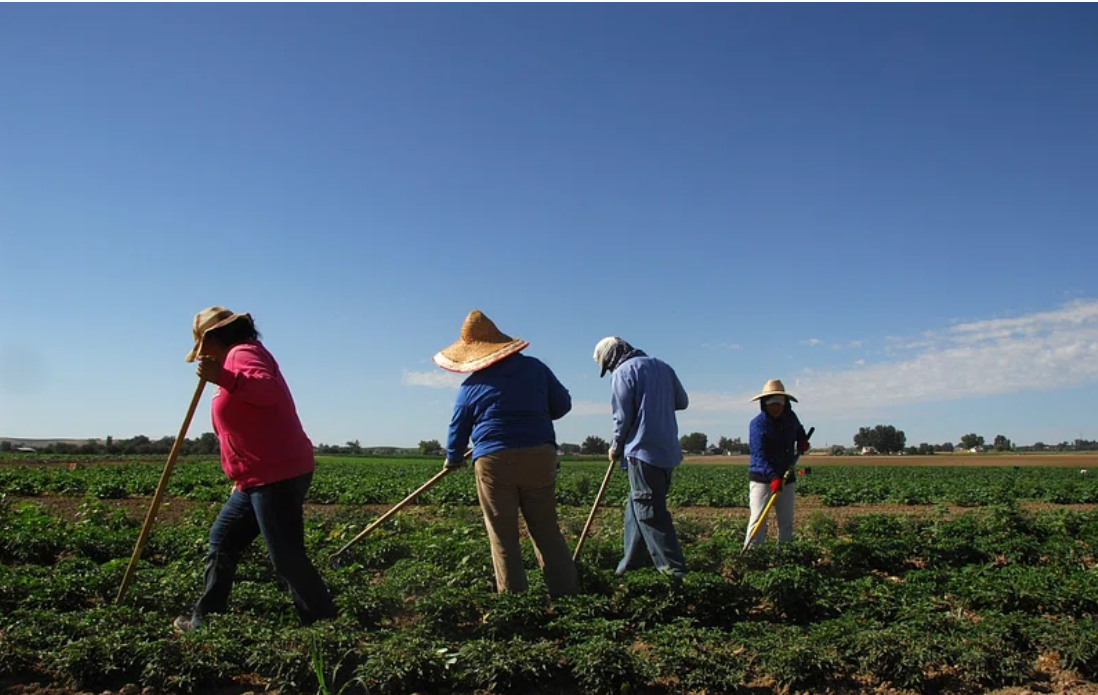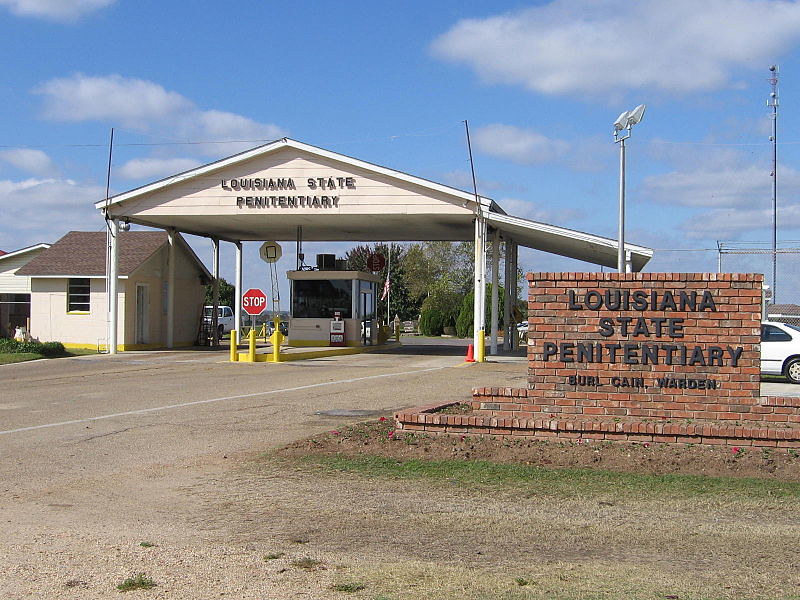A former Southern slave plantation in Angola, Louisiana, is now the country’s largest maximum-security prison. And that’s not all that goes on here that should be of interest to us.
The Louisiana State Penitentiary houses men who are sentenced to hard labor and forced to work, for pennies an hour or sometimes nothing at all. The cows they raise are bought by a local rancher and then end up in a Texas slaughterhouse 600 miles away. This will become the hamburger that you will buy at McDonald’s—or the ground beef at Walmart and Cargill.
According to an investigation by the Associated Press, prison labor stands behind some of the world’s largest food companies and most popular brands– jobs performed by U.S. prisoners nationwide that yield hundreds of millions of dollars’ worth of agricultural products and other goods sold on the open market.
As prisoners, they work without a choice, if they refuse, they can jeopardize their chances of parole or face punishment like being sent to solitary confinement. They also are often excluded from protections guaranteed to almost all other full-time workers, even when they are seriously injured or killed on the job.
Within days of their arrival in Angola, Louisiana, they are sent out into the fields, sometimes working the old-fashioned and labor-intensive way: using hoes and shovels or picking crops by hand.

What these prisoners produce winds up in the supply chains of an array of products found in most American kitchens, from Frosted Flakes cereal and Ball Park hot dogs to Gold Medal flour, Coca-Cola and Riceland rice. They are ubiquitous, on the shelves of virtually every supermarket in the country, including Kroger, Target, Aldi and Whole Foods, and in your pantry and refrigerator.
This forced and frequently unpaid labor is completely legal, a relic of the post-Civil War Reconstruction period when prisoners helped rebuild the South’s shattered economy. While the 13th Amendment ended slavery, and involuntary servitude was banned, it is still legal as punishment for a crime.
That clause is currently being challenged on the federal level, and efforts to remove similar language from state constitutions are expected to reach the ballot in about a dozen states this year.
In an eerie throwback to a history that we would like to forget, some prisoners work on the same plantation soil where slaves harvested cotton, tobacco and sugarcane more than 150 years ago, with some images looking disturbingly similar to the past. In Louisiana, which has one of the country’s highest incarceration rates, men working on the “farm line” fill the fields in row after row.
In an interview in October 2023, Willie Ingram describes his 51 years spent as a prisoner in Angola. He has picked everything from cotton to okra and recalls seeing men, working with little or no water, passing out in the fields in triple-digit heat. Some days, he said, workers would throw their tools in the air to protest, despite knowing the repercussions. All to no avail, there is no respite from these conditions, overseen by armed guards on horseback.
“They’d come, maybe four in the truck, shields over their face, billy clubs, and they’d beat you right there in the field. They beat you, handcuff you and beat you again,” said Ingram, who received a life sentence after pleading guilty to a crime he said he didn’t commit, and was finally released in 2021.
An analysis of data amassed by the AP from correctional facilities nationwide traced nearly $200 million worth of sales of farmed goods and livestock to businesses over the past six years – a conservative figure that does not include tens of millions more in sales to state and government entities.
Corrections officials and other proponents justify the system noting that not all work is forced and that prison jobs save taxpayers money. For example, in some cases, the food produced is served in prison kitchens or donated to those in need outside. They also say workers are learning skills that can be used when they’re released and given a sense of purpose, which could help ward off repeat offenses.
Critics say that while all these forced jobs should not be eliminated, incarcerated people should be paid fairly, treated humanely and that all work should be voluntary.
“They are largely uncompensated, they are being forced to work, and it’s unsafe. They also aren’t learning skills that will help them when they are released,” said law professor Andrea Armstrong, an expert on prison labor at Loyola University New Orleans. “It raises the question of why we are still forcing people to work in the fields.”

This modern-day institution that is so similar to slavery offers many advantages to all but the workers. In addition to tapping a cheap, reliable workforce, companies sometimes get tax credits and other financial incentives. Incarcerated workers also typically aren’t covered by the most basic protections, including workers’ compensation and federal safety standards. In many cases, they cannot file official complaints about poor working conditions. Often these prisoners work in industries with severe labor shortages, doing some of the country’s dirtiest and most dangerous jobs.
Current and former prisoners in both Louisiana and Alabama have filed class-action lawsuits in the past four months saying they have been forced to provide cheap – or free – labor to those states and outside companies, a practice they also described as slavery.
The AP went out on a work detail with a Florida chain gang and found a scene that is like something out of a history book, convicts wearing black-and-white striped uniforms and ankle shackles, created after Brevard County Sheriff Wayne Ivey took office in 2012. According to him, the unpaid work is voluntary and so popular that it has a waitlist.
But the crux of the issue is that it’s profitable. “It’s a win-win,” he said. “The inmate that’s doing that is learning a skill set. … They are making time go by at a faster pace. The other side of the win-win is, it’s generally saving the taxpayers money.”
Ivey expressed the concept that stands behind the antiquated system of forced labor and that perpetuates it: “I don’t feel like they should get paid. They’re paying back their debt to society for violating the law.”












